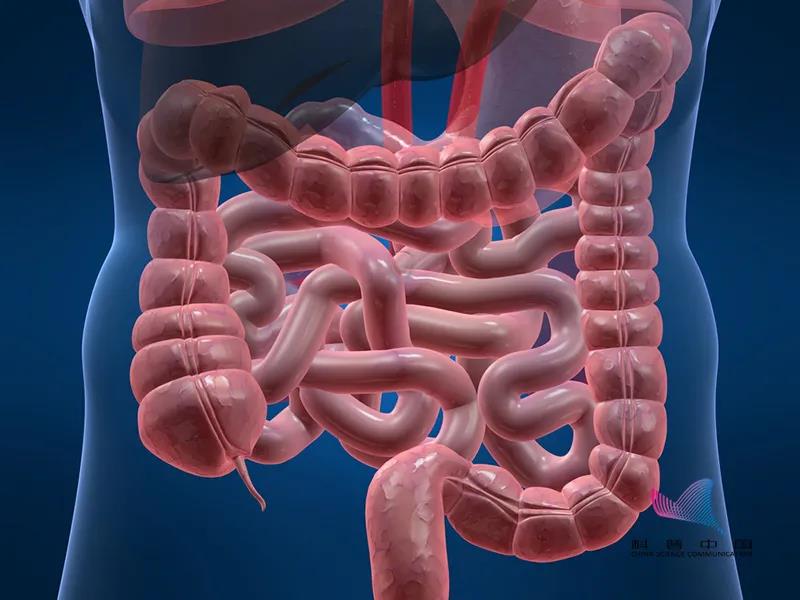
Everyone should have had a time when their stomachs “growling” badly. At this time, it must be a little embarrassing.

In case your belly is growling in some special occasion, you will be extremely embarrassed..
Do you know that? The belly “growling” may be that you’re hungry, or something else is happening in the belly. At this time, it is not only embarrassing, but you may also need to go to the doctor.
Why does the belly “growl” sometimes?
The stomach “growling” is bowel sound in academic.
When the intestine peristalsis, the gas and liquid in the intestine will flow with it, and there will be intermittent grunting or gas over water sound, generally about 4-5 times per minute. Bowel sounds are usually low and gentle, which is hard to hear. Once the bowel sounds are too large, it will cause “embarrassment” to everyone.

The belly here generally refers to the digestive tract of the abdomen. It is a continuous pipe from the mouth to the anus, which is divided into the mouth, pharynx, esophagus, stomach, small intestine and large intestine. The bowel sounds are produced when the gas and liquid in the stomach, small intestine and large intestine flow.
The liquid in the intestine is mainly the water and digestive fluid that is drunk in. Even if it is not drunk, the digestive fluid in the gut will also be produced. The total amount of various digestive fluid secreted by normal human body every day reaches 6-8l. The final discharge depends on the absorption capacity of digestive tract. For example, when the intestinal obstruction occurs, the intestine is extremely dilated, which affects the absorption function of the small intestine and the large intestine, resulting in excessive accumulation of digestive fluid in the gut.

Where does the gas come from?
In fact, when we eat daily, we will swallow part of the air through the mouth, and the intestinal flora will also produce part of the gas in the process of metabolism. Most of them are colorless and odorless carbon dioxide and nitrogen, and some are alkanes and sulfur, which smell like rotten eggs.
Your stomach growls to let you know you’re hungry?
In most cases, yes.
The emptying time of the stomach is about 4-6 hours. When the stomach is about to empty, the gastric juice is still secreted continuously, and the stomach will have an illusion that it thinks that its peristaltic power is not enough, and then it contracts harder. This phenomenon is called “Hunger Contraction”.
However, there is less gas in the stomach, and the violent contraction will squeeze the air into the intestines, producing a “coo” sound. At the same time, the signal of hunger contraction is transmitted to the brain, and the feeling of hunger appears.
So, most of the “growling” is the belly protesting, reminding us that it is time to eat.

But sometimes my belly “growling” stopped after a while, and there was no feeling of hunger.
This is because the hunger contractions are periodic. In the hungry state, after the stomach contracts strongly for about half an hour, the muscles will become fatigued. If you calm down for a while, you will naturally not feel hungry. Once you see the food, the stomach acid begins to secrete again, the stomach continues to contract strongly, and the belly begins to “growl” again.
But in addition to the stomach reminding you that you are hungry, there are also the following situations where “growling” may occur.
Attention should be paid to these kinds of “growling”
In the following cases, not only will the stomach “growling”, but also there may be pain, abdominal distension, nausea and vomiting, diarrhea, bloody stool and other symptoms. Once it happens, we should be alert!
① Acute gastroenteritis
The intestinal flora is unbalanced, the gas produced increases, the intestinal peristalsis accelerates and the strength is increased, thereby squeezing the gas;
② Massive gastrointestinal bleeding
When the gastrointestinal tract has hemorrhage, the intestinal flora will decompose and digest the blood, and the blood contains a lot of protein, which will produce more gas;
③ Intestinal dysfunction
The most important ones are intestinal allergies or cramps, biliary diseases and the inability to absorb lactose in the body. If the lactase enzyme that digests lactose is lacking, it will cause digestion and absorption disorders in drinking milk and dairy products, and the undecomposed lactose will be fermented by the intestinal flora, resulting in flatulence;

④ Oral laxatives or gas-producing foods
Foods such as tofu, soy milk and other soy products, cauliflower, peaches, apples, melons and other fruits, and onions will cause the intestinal flora to decompose and ferment to produce excessive gas;
⑤ Intestinal obstruction
Intestinal obstruction, pain (abdominal pain), vomiting (vomiting), bloating (abdominal distension), closure (non-exhausting and defecation), a large amount of gas accumulates in the intestines, and when the intestinal wall is violently contracted, there will be hyperintestinal sounds , It is characterized by frequent bowel sounds, loud, high-pitched, and even clanging or metallic sounds, which are seen in mechanical intestinal obstruction. Acute intestinal obstruction has a complicated condition. With the evolution and development of the disease, it may be severely life-threatening. Therefore, once symptoms of intestinal obstruction are found, go to the hospital as soon as possible.
Is it normal if the stomach doesn’t growl at all? of course not.
When intestinal peristalsis weakens, bowel sounds are also weakened, which is common in long-term intestinal obstruction, electrolyte disturbance (hypokalemia), senile constipation, peritonitis, and hypomotility of the gastrointestinal tract. If you do not hear bowel sounds after auscultating the abdomen with a stethoscope for 2 minutes, or if you do not hear bowel sounds after tapping or tapping the abdominal wall with your hands, it is considered that bowel sounds have disappeared and you need to be treated as soon as possible to avoid delaying treatment.
What should I do if my stomach always “growls”?
1. Find out the cause of the belly “growling”. If it is caused by the diseases mentioned above, go to the hospital for diagnosis and treatment as soon as possible;
2. When eating, chew slowly and don’t eat too full, too fast, and avoid swallowing too much air.
Do not drink gas-producing beverages. Try to reduce the intake of gas-producing foods, such as tofu and soy products, cabbage, sweet potatoes, and high-protein foods;
3. If you have lactose intolerance, avoid drinking milk and dairy products as much as possible. You can drink some yogurt appropriately to increase the number of probiotics in the intestinal tract and avoid the fermentation of intestinal flora to produce gas;
4. If you have flatulence in the intestines, do not hold back, because if you do not expel these gases, not only will “growling” occur, but also harmful substances such as hydrogen sulfide, ammonia, indoles, etc. may be reabsorbed. Cause harm to human body;

5. Drink porridge and soup frequently. Do not drink water or tea immediately after meals, which will dilute stomach acid and reduce digestion.
Comments